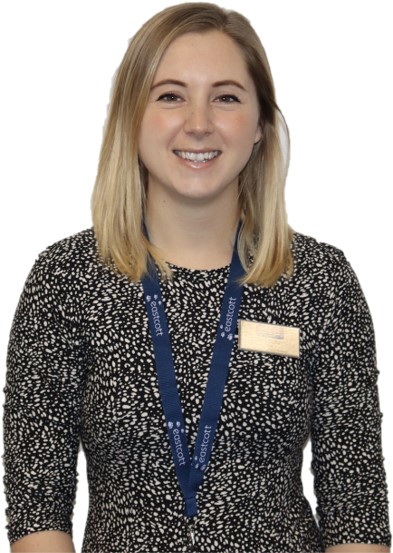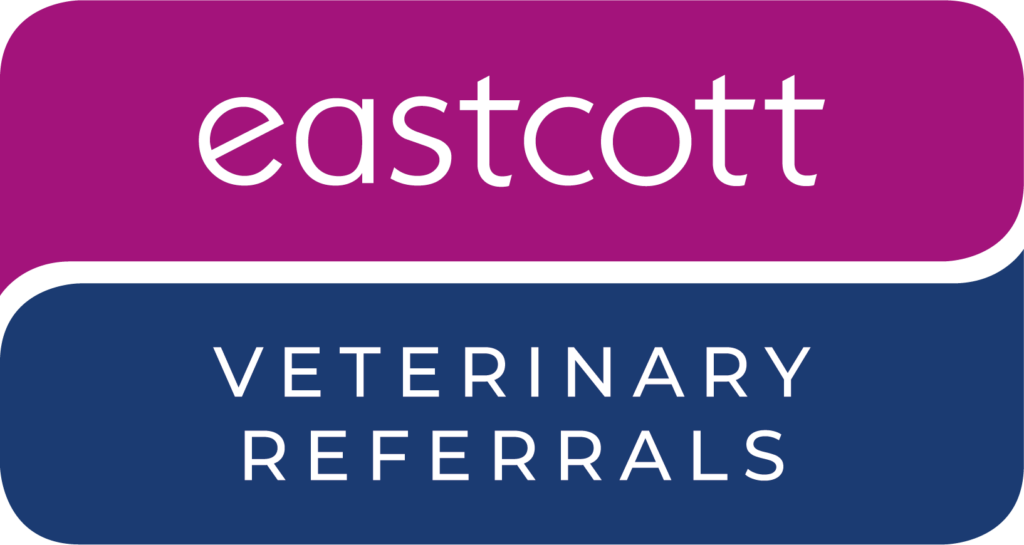Categories
Head of Referral Nursing – Veterinary Nurse Awareness Month 2021

As part of Veterinary Nurse Awareness Month, we’re going to be focusing on some of our amazing veterinary nurses and show the different careers each one has chosen. Today we hear from our Head of Referral Nursing – Amy Dutton.
What got you interested in becoming a veterinary nurse?
I always wanted to be a veterinary nurse, from a young age I just loved being around animals and taking care of them. I’ve not been in the profession in various roles for 15 years and most recently took on a new role as Head of Referral Nursing Services here at Eastcott.
What are the key skills you think you need to be a successful RVN?
Passion for the role is a must. Enthusiasm to learn and effective communication with clients and veterinary staff are key aspects of veterinary nursing. Things are constantly evolving with regards to recommended treatments, procedures and medications, so keeping your knowledge and skills up to date is also imperative. Ultimately, wanting to do the best for your patients is the most important thing.
What do you love about the job?
I love being able to support patients through a time of need, bonding with them and hopefully watching them get better and go home. I also love supporting other members of my team, ensuring the care we are providing as a hospital is to a good standard, and staff members have job satisfaction in their work.
What makes your role so rewarding?
Feeling like you have made a difference to your patients recovery and experience in the hospital. Seeing changes and evolution in processes that ultimately improve the care and welfare of our patients. Watching staff grow and develop in clinical skills and confidence.
Is there any particular patient or case you’ve been involved with that has stuck with you?
Lots! Many cases stay with you forever, for me they are usually the patients that have stayed in the hospital for a long time.
Once case I remember well was a young cockerpoo that had a neurological condition meaning he couldn’t walk or move much at all. Management for this condition is supportive treatment, mostly physiotherapy to prevent muscle wastage, assisted feeding as he could not walk, and bladder management as he could not go outside to the toilet. He was such a joy to nurse and after around 10 days of intensive nursing care he walked out of the hospital with his owners wagging his tail.
How did you find the challenges posed by 2020? Both professionally and personally
2020 has been a hard year for everyone. It definitely contributed to me decided to take on a new role as I needed a new challenge. Personally, I have had to come up with ways of filling my spare time, taking up running during the first lockdown has really helped and given me something to focus on. Managing people through difficult times can be challenging, but when done well is extremely rewarding. Overall, I think despite everyone’s individual challenges people have really pulled together and supported each other.
What additional qualifications do you have or you’re working towards?
I have completed a clinical coaching certificate so I can train student nurses. Since then, I have also done a certificate in Emergency and Critical Care and a Graduate Diploma in Advanced Veterinary Nursing. I have just finished my Mental Health First Aider Training and am about to embark on some management and leadership training.
If you could go back in time what advice would you give to the younger you starting out on your career?
Veterinary Nursing is an ongoing learning process; you will never know absolutely everything but being passionate, and willing to learn and adapt is most important. It is an extremely rewarding career, and there are an ever-expanding number of roles veterinary nursing can lead to.
